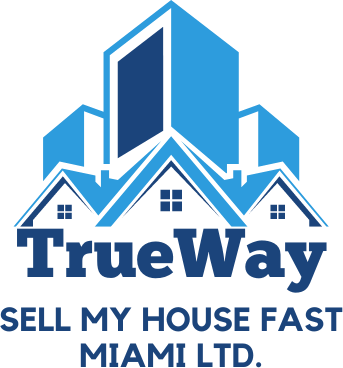Selling your house is a significant financial transaction and optimizing the profitability of this endeavor is a topic of keen interest to many homeowners. One might consider the use of professional real estate agents, explore the domain of online listing platforms or even venture into the world of For Sale by Owner (FSBO). Each of these options has its own unique set of advantages and challenges that can impact the final selling price. As we unpack this topic, we invite you to contemplate which approach might best align with your specific circumstances and financial goals.
Understanding Your Home’s Value
How can you truly ascertain the value of your home? This critical question is best answered by employing a combination of valuation methods and conducting a thorough market analysis.
Valuation methods are procedures that real estate professionals use to estimate a property’s worth. This typically involves an appraisal process, where an experienced appraiser examines your property’s condition, location, and comparables, or “comps”, in your neighborhood. Comps are similar homes that have recently sold or are currently on the market, and they provide a practical benchmark to assess your home’s value.
Market analysis, on the other hand, involves a broader investigation into the real estate market’s current trends and conditions. By analyzing key factors such as supply and demand, interest rates, and economic indicators, you can gain a deeper understanding of the market’s trajectory and how it may impact your home’s value.

Enhancing Your Home’s Appeal
Certainly, enhancing your home’s appeal is a crucial factor in boosting its market value. The right cosmetic improvements can make your property more attractive to potential buyers, leading to quicker sales and higher bids.
Firstly, curb appeal enhancements should not be overlooked. The exterior of your home is the first thing potential buyers see, and it sets the tone for the rest of the viewing. Landscaping improvements can greatly enhance the aesthetic appeal of your home. Consider repainting the exterior, updating your front door, or adding attractive plants and flowers.
On the other hand, the interior of your home is equally important. Staging tips can make a world of difference in how your property is perceived. A well-staged home can make spaces appear larger and more inviting. As a result, invest in professional interior design services, such as repainting walls, updating fixtures, or rearranging furniture.
Hiring a Professional Realtor
Engaging the services of a professional real estate agent can greatly simplify the process of selling your home. Realtor benefits are extensive, and when used effectively, they can provide a substantial return on your investment. Real estate agents possess detailed knowledge of the housing market and can strategically price your home for maximum profitability.
Beyond pricing, real estate agents also offer marketing expertise. They can showcase your property to a wide audience, leveraging their vast networks and industry connections. They are also experts in negotiation, which can significantly boost your final selling price.
Commission rates, often a point of concern for sellers, are typically justified by the value provided. A real estate agent’s commission is often a percentage of the final sale price, motivating them to sell your home at the highest possible price.
In essence, while commission rates may seem overwhelming initially, the multitude of real estate agent benefits, from market knowledge to negotiation skills, can far outweigh this cost. Therefore, hiring a professional real estate agent can indeed be the most profitable way to sell your home. However, it’s important to choose a real estate agent who aligns with your selling goals and understands your specific needs.
Choosing Online Real Estate Platforms
A significant number of homeowners are now leaning towards online real estate platforms as a viable option for selling their homes. This shift is largely driven by the myriad of benefits these platforms offer over traditional methods, most notably concerning online marketing and virtual tours.
Online marketing provides an expansive reach to potential buyers across the globe. It enables speedy transactions and provides real-time feedback and analytics that help to fine-tune marketing strategies. Sellers can target specific demographics and tailor their advertisements accordingly, enhancing the likelihood of attracting serious buyers and ultimately closing deals faster.
Furthermore, virtual tours have revolutionized the home viewing process. They offer potential buyers a 360-degree view of the property at their convenience, saving time and travel costs for both parties. These immersive experiences allow buyers to visualize living in the space, encouraging faster decision-making and improving the chances of a sale.
Exploring FSBO (For Sale by Owner)
Taking the reins to sell your own home, an approach known as For Sale by Owner (FSBO), can yield substantial financial advantages if executed effectively. Understanding the FSBO process is critical, as it requires careful navigation through a series of legal and financial procedures. However, despite the potential challenges, the financial savings from bypassing real estate agent commissions can be significant, making FSBO a profitable option worth considering.
Understanding FSBO Process
In the domain of real estate sales, FSBO or “For Sale by Owner” is an appealing strategy that empowers homeowners to take charge of their property’s sale, instead of relying on a real estate agent. It is a process that demands understanding and careful consideration of both the FSBO advantages and FSBO hazards.
When you choose FSBO, you eliminate the need to pay commission to a real estate agent. This can lead to significant savings, especially if your property has a high market value. The autonomy that comes with FSBO allows you to control the pricing, marketing, and negotiating processes, which can be particularly advantageous if you have a deep understanding of the local real estate market or a unique property that requires a specialized sales approach.
However, the FSBO process can also entail risks. Lack of experience in real estate transactions can lead to pricing errors or legal missteps. Additionally, the time and effort required to successfully market, negotiate, and close a sale can be considerable. It’s essential to weigh these FSBO advantages and hazards before proceeding with this approach.
Advantages of FSBO
Choosing to sell your home through the FSBO method can offer several compelling benefits. One of these is the potential for increased profit. Without a realtor’s commission to cover, you may keep a larger portion of the sale price.
Next, consider the power of personalized marketing strategies. With FSBO, you have complete control over how your home is presented in the market. You know the unique selling points of your home better than anyone else and can customize your approach to highlight these features.
Legal considerations are another key benefit. Selling FSBO allows you to understand and control the entire legal process. You can engage directly with potential buyers, negotiate terms, and oversee the legal paperwork. This eliminates any potential communication gap that might occur with a third-party intermediary.
Lastly, FSBO offers an opportunity for learning. You’ll gain valuable experience and knowledge about the real estate industry, which can be beneficial for future transactions.
Challenges in FSBO
While the advantages of FSBO can be substantial, there are also considerable challenges that need to be addressed. One of the most significant hurdles is the lack of exposure to potential buyers. Traditional real estate agents have access to extensive networks and marketing tools that individual homeowners may not. This could potentially limit the pool of interested buyers, making it more challenging to sell the house quickly and at the desired price.
Another challenge is the difficulty in maneuvering the legal and financial complexities involved in selling a home. Without professional guidance, homeowners run the risk of making costly mistakes or overlooking essential steps in the process.
However, these challenges are not insurmountable, and with careful planning and research, you can avoid these pitfalls, maximizing your profit. By thoroughly understanding the market, preparing your home for sale, pricing it correctly, and effectively marketing it, you can overcome these obstacles.
Remember that selling a home requires a significant time commitment. If you decide to go the FSBO route, be prepared to devote substantial time and effort to the process. This is vital for successfully selling your home and reaping the financial benefits of FSBO.
Timing the Real Estate Market
Understanding the rhythm of the real estate market can greatly enhance your profit when selling a house. Both market cycles and best selling seasons play crucial roles in determining the ideal time to list your property. Additionally, various factors influencing house prices should also be considered to achieve the best possible sale outcome.
Understanding Market Cycles
In the domain of real estate, market cycles play a pivotal role in determining the profitability of your home sale. These cycles, characterized by periods of boom, slowdown, and recovery, are largely driven by economic indicators and can greatly influence property prices.
An understanding of these market cycles can greatly enhance your investment strategies. By selling during a boom period, when demand outstrips supply, you can secure the highest prices for your property, maximizing your return on investment. Conversely, selling during a slowdown or recovery phase may not yield as much profit due to less competitive market conditions.
Market analysis is key to understanding these cycles. This involves observing and interpreting market trends, such as changes in property prices, housing supply, and demand, as well as broader economic indicators. It is through this detailed analysis that you can identify the best times to sell your property.
Optimal Selling Seasons
An often overlooked aspect of successful home selling is the seasonality of the real estate market. Seasonal fluctuations play a significant role in buyer preferences, impacting the likelihood and profitability of a sale. Understanding these cyclical trends can provide you with a competitive edge, enabling you to maximize your potential profits.
Market trends show a distinct correlation between seasons and buyer activity. Spring and summer often see a surge in buyer interest, attributed largely to favorable weather conditions and the convenience of moving during school vacations. Conversely, winter typically sees a slowdown in market activity, with potential buyers deterred by the weather impact and the general busyness of the holiday season.
However, selling during off-peak seasons should not be entirely discounted. Despite fewer active buyers, those in the market during these periods are often more serious and motivated to close a deal, potentially leading to quicker sales.
Factors Influencing House Prices
While seasonal trends undoubtedly play a role in property sales, they are just one piece of the puzzle when it comes to accurately timing the real estate market. Other significant factors that influence house prices include pricing strategies and economic trends.
An effective pricing strategy is vital to maximizing returns on your property. Overpricing might deter potential buyers, while underpricing may lead to a quick sale but a lesser profit. A well-researched, competitive pricing strategy can attract the right buyers and yield the highest returns.
Economic trends also greatly impact house prices. During periods of economic growth, demand for houses often increases, pushing prices up. Conversely, during economic downturns, house prices may stagnate or fall as buyer demand decreases. Hence, an understanding of current and anticipated economic conditions is critical to timing the sale of your house for maximum profitability.
Negotiating the Best Deal
How can one secure the best price when selling their home? An important aspect is understanding effective negotiation strategies. A seller’s ability to negotiate effectively can play a significant role in maximizing profit from the sale. It’s not just about setting a high initial price; it’s about maintaining flexibility and demonstrating value that justifies your price.
Prioritize understanding your potential buyer’s position. Knowing what they value in a property can give you an edge in negotiations. Perhaps they’re looking for a quick move and would appreciate an already vacant property, or maybe they are enticed by certain upgrades you’ve made to the house.
Additionally, consider utilizing buyer incentives to close deals. These incentives may include covering closing costs, offering a home warranty, or even including furniture or appliances in the sale. Such incentives can make your property more appealing, leading to a quicker sale at a better price.
Managing Post-Sale Financials
Upon finalizing the sale of your house, careful management of post-sale financials becomes a vital next step. This process involves not only the allocation of received funds but also budget planning and understanding the tax implications of the transaction.
Effective budget planning post-sale ensures you can meet all your financial obligations and use the proceeds from the sale efficiently. This could be crucial if you’re moving to a new home or investing in a new property. You must consider all associated costs, such as moving expenses, a potential mortgage on a new home, or renovation costs.
The tax implications of a house sale are another essential aspect that should not be overlooked. Tax laws vary, and the amount of profit from the sale can greatly affect your tax liability. You may be eligible for certain exclusions or deductions, saving significantly on taxes. It is advisable to consult with a tax expert to navigate these complexities and understand the potential impact on your overall financial health.
Frequently Asked Questions
What Tax Implications Should I Consider When Selling My House?
When selling your house, consider capital gains tax implications. However, income tax deductions and exemptions may offset this. Understanding these factors is crucial to maximize profit and comply with tax regulations. Consult a tax professional for advice.
Can I Sell My House if Its Not Paid off Yet?
Yes, you can sell your house even if it’s not fully paid off. The selling options available include using the sale proceeds for mortgage payoff. Be aware, however, of potential penalties or fees.
How Should I Prepare for House Showings?
To effectively prepare for house showings, thorough cleaning is essential. Consider professional staging tips for an engaging presentation. Incorporate virtual tours to provide a detailed view, enhancing potential buyers’ interest and increasing chances of a successful sale.
What if My House Doesnt Sell Within the Expected Time Frame?
If your house doesn’t sell within the expected timeframe, consider price reductions and implementing staging tips to make it more appealing. Both strategies can expedite the selling process and attract potential buyers.
Should I Consider Renting Out My House Instead of Selling It?
Renting out your property can provide steady rental income, transforming it into an investment property. However, consider the long term versus short term profit potential and your personal circumstances before making such a decision.






